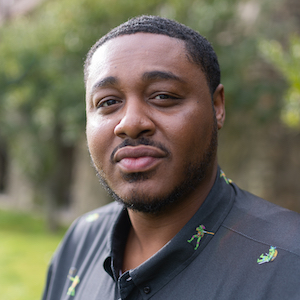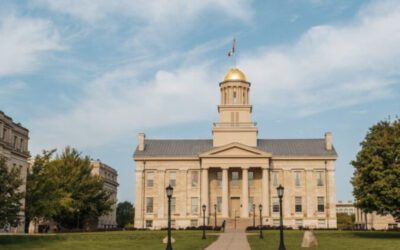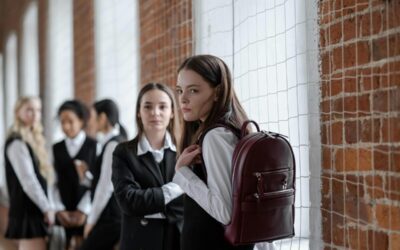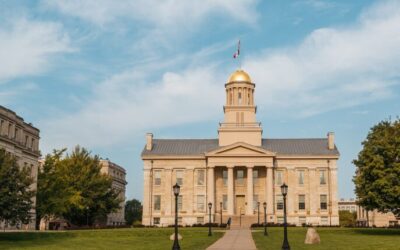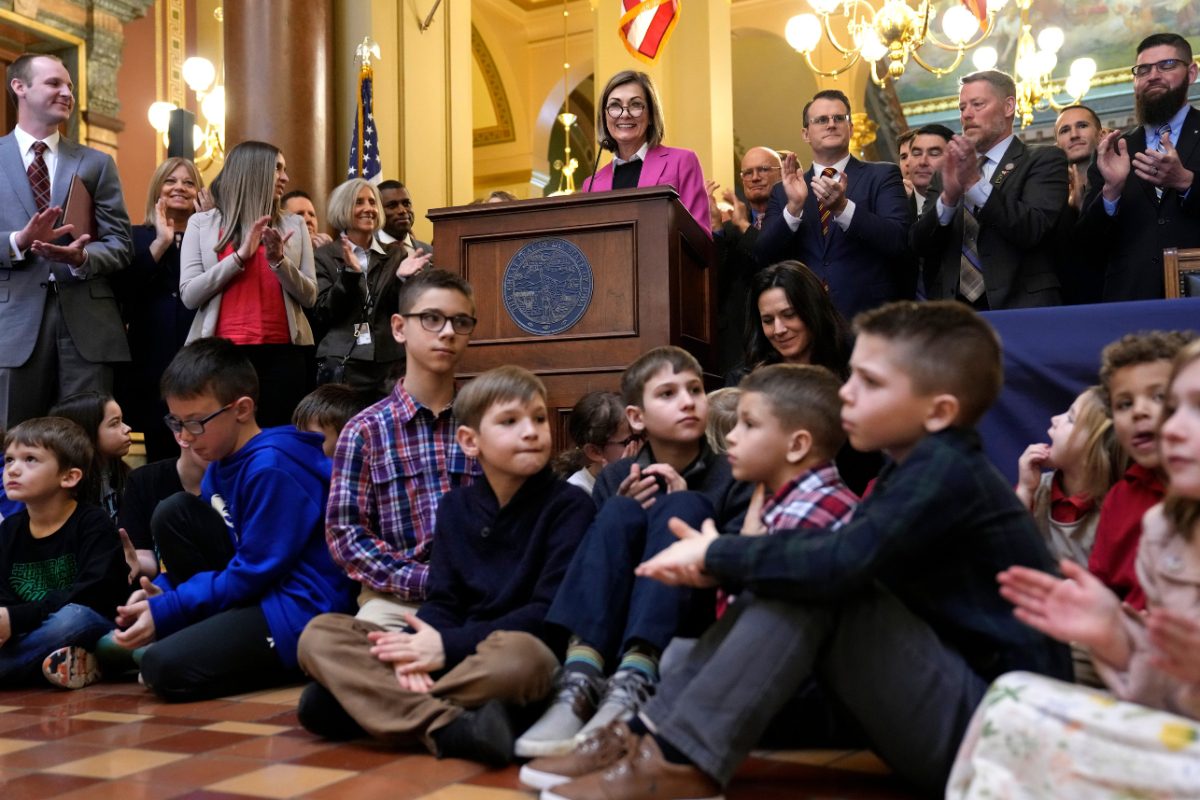
Iowa Gov. Kim Reynolds speaks to supporters before signing a bill that creates education savings accounts, Tuesday, Jan. 24, 2023, at the Statehouse in Des Moines, Iowa. (AP Photo/Charlie Neibergall)
Educational policy expert Josh Cowen breaks down the shortcomings of Iowa’s voucher program.
Iowa Republican elected officials who supported the creation and implementation of the state’s taxpayer-funded private school tuition voucher program touted it as a great equalizer for education access and a way to “empower parents.”
In actuality, the program has been primarily used as a tax rebate for families whose children already attended private schools and as a new source of income for Iowa private schools, most of which have implemented tuition hikes across the board.
Josh Cowen, a professor of education policy at Michigan State University and author of the upcoming book “The Privateers: How Billionaires Created a Culture War and Sold Vouchers,” said what’s happening in Iowa is the same as other states with similar programs.
“Historically, vouchers—first and foremost—pay for kids who are already in private schools,” he said. “This idea that these things provide these new avenues—the words they would use are ‘hope’ and ‘opportunity’ or ‘lifeline from public schools’— is just not how it plays out in reality.
“Overwhelmingly, kids are already in private school and or were never in public school in the first place, so kindergarten kids. And over time, that becomes even more true—there’s just not a lot of crossover.”
‘Universal program disguised’
In the first year of Iowa’s voucher program—called the Students First Education Savings Accounts—66.3% (or two-thirds) of the 16,757 participants already attended private school. Furthermore, nearly 21% of voucher recipients were entering kindergarten students.
“It’s about 70 percent, 75 percent in every state—doesn’t matter how big the state is, how small the state is, the demographics—about 70 percent of voucher users were already in private school,” Cowen said, noting vouchers essentially work as a tax rebate for those families.
The Iowa program’s first year restricted access to students who had a household income at or below 300% of the federal poverty guideline, but that restriction will be raised to 400% in the 2024-25 school year before being phased out entirely in the 2025-26 school year.
Something Cowen said not a lot of people hone in on is that even with the restrictions in place, most Iowa families still qualified for a voucher. The maximum income limit for a family of four in the first year of the voucher program was $90,000 and the median income for that same family in Iowa is $103,754, according to US Census data.
“You put the word poverty in there and it sounds like a poverty program; it’s not,” Cowen said referring to the federal poverty guideline. “An anti-poverty program would be like 175 percent or 200 percent.
“You start to get above 250 to 300 and especially about 350 then you are talking about most Iowans eligible for this thing,” he continued. “It really is just a universal program disguised. They may as well have just said everybody’s eligible, honestly.”
Lower academic performances result
For the kids who switched from public schools to private schools due to vouchers over the last decade or so, Cowen said he’s seen lower academic performance in other states.
“The larger [the voucher program has] gotten and the more recent it was passed, we see some of the largest academic declines in the history of education research. Not just in vouchers, out of any topics for kids who do transfer from public to private school,” Cowen said.
He said the test score drops for kids switching from public to private because of vouchers are comparable to academic drop-offs after Hurricane Katrina and the COVID-19 pandemic.
“Those are natural disaster comparisons,” Cowen said.
A Kentucky Lantern article from earlier this year cites academic studies conducted on voucher programs in Indiana, Louisiana, and Ohio as examples of voucher recipients performing worse academically after transferring.
In Indiana, voucher students “experienced achievement loss in mathematics” in their first year of private school, and the loss “persisted regardless of the length of time spent in a private school.” Ohio students fared worse on state exams compared to “their closely matched peers remaining in public school.”
The worst results were in Louisiana. An American Economic Journal study showed that the Louisiana Scholarship Program “lowers math scores … and also reduces achievement in reading, science, and social studies.”
“It’s rare in education policy research to find something that truly did harm,” Cowen said. “Usually, we call a policy a failure if it just doesn’t have an impact—it doesn’t help the kids the way we promised it would, but it doesn’t hurt them … vouchers absolutely hurt the kids who transfer.”
Why private schools often underperform
Cowen said the primary reason kids see academic drop-offs once they switch to private schools is because people naturally assume private schools are these “elite academies,” which he said is often not the case.
“For the most part, we’re talking about church-based schools—what I call sub-prime providers, financially distressed organizations often again attached to churches—they are financially distressed for a reason: They’re not very good,” he said.
“It’s hard to run a school. I don’t care if it’s a public or a private or a Catholic or non-Catholic, it’s hard to run a school and these churches aren’t particularly in the business of educating kids alongside an academic trajectory. That’s not the point.”
Cowen argues that the true goal of most of these religious educational institutions is to build out their congregations and make money.
“We know from Wisconsin research that over time, vouchers actually become an important source of revenue—not just for the church school … but for the church itself to which the school is attached,” Cowen said.
The Wisconsin legislature allocated more than $700 million to vouchers in its most recent biennial budget and 96% of the schools receiving those funds were private religious schools, according to a Washington Post analysis.
Most of the private schools in Iowa are affiliated with a religion but have been around for decades. However, new private schools are on the horizon, including one being started by a state representative who cited voucher funding he voted for as a reason.
Cowen also noted the private school tuition hikes in Iowa and the Princeton study conducted on the matter are other examples of why this is indeed about the money for some of those schools affiliated with religious institutions.
“If this was all about hope, opportunity, and access, these private schools wouldn’t be raising the tuition,” he said.
Cowen said a tuition increase over 10% in a year is big and multiple Iowa schools had tuition increases well beyond that.
“That’s the tell. That’s the tell that this is all about bailing out these churches,” he said. “The academics also show for it.”
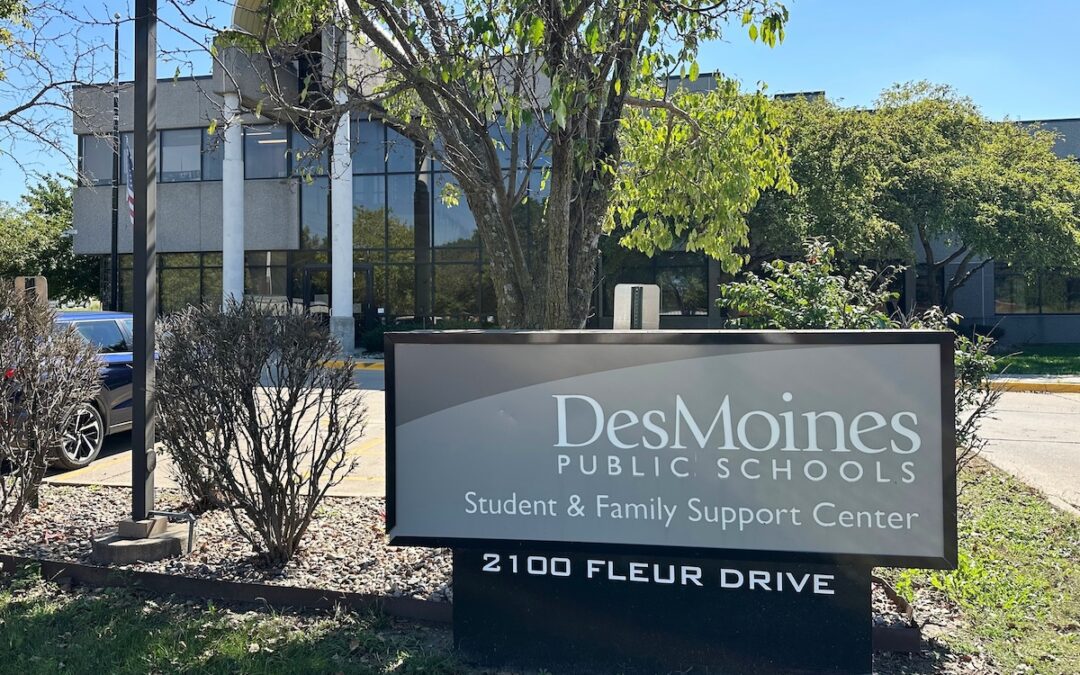
What we know about Ian Roberts, the Des Moines Superintendent arrested by ICE
The former Des Moines Public School superintendent’s arrest by ICE has garnered international attention and prompted a closer look at his...

Urbandale now 6th Iowa school district to protect trans and nonbinary students
Urbandale has joined five other Iowa school districts in voting to protect its transgender and nonbinary students. Following the removal of gender...

Iowa Board of Regents tries banning university courses that teach about social justice
The Iowa Legislature passed a bill this session banning diversity, equity, and inclusion programs and trainings by "public entities," including...
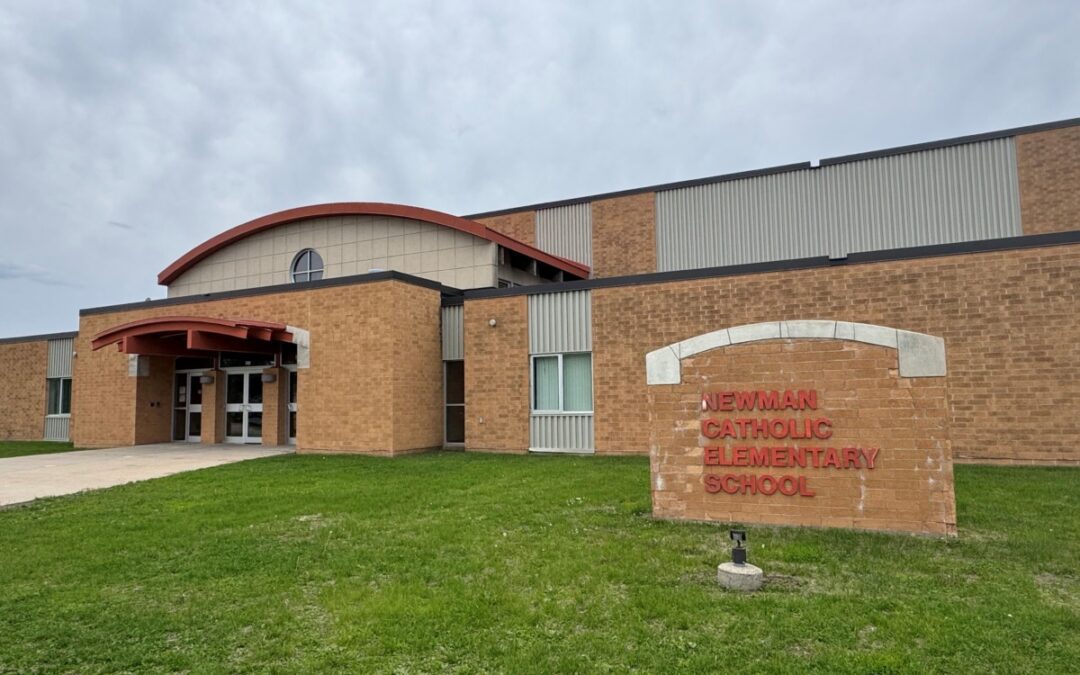
Critics warn of ‘money laundering’ as Iowa expands school voucher program
Iowans have a right to know how their taxpayer dollars are being used—but when it comes to the state's private school voucher program, that’s not...
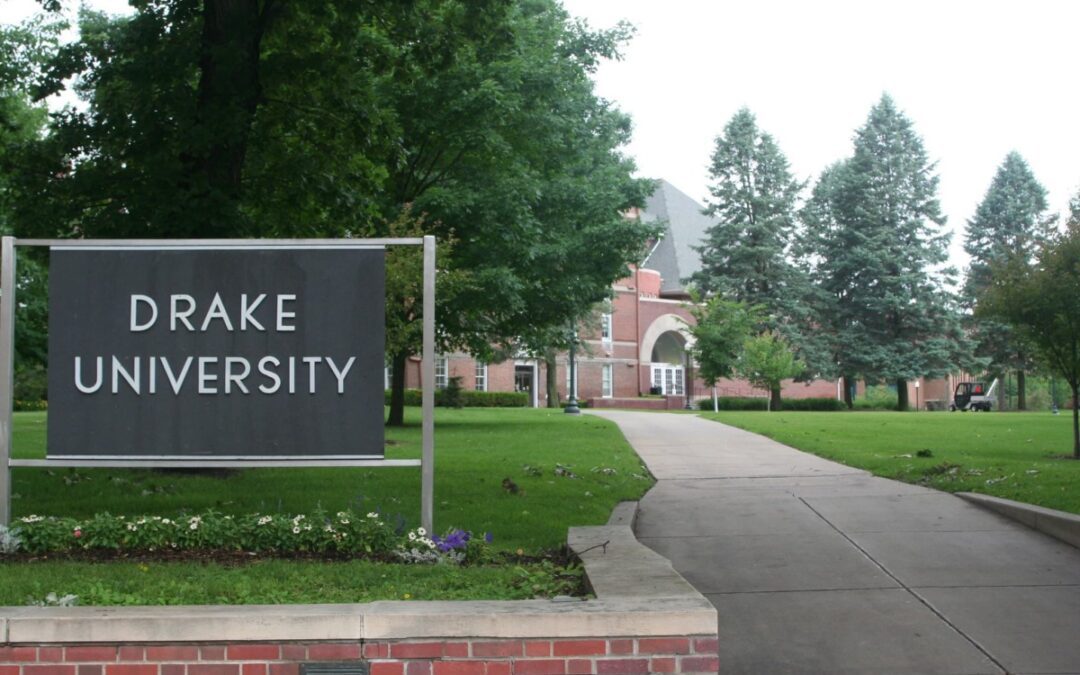
Find your passion at Drake University summer camps
Discover your passion at Drake University's 2025 summer camps! From voice training to business innovation, find the perfect program for high...
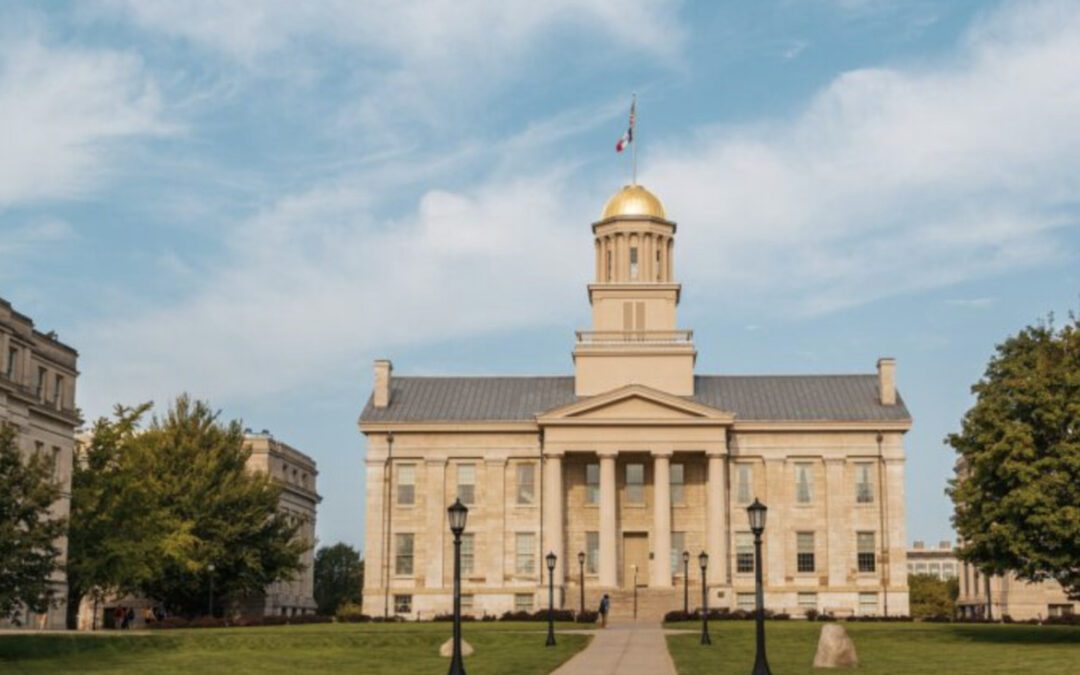
University of Iowa ranks high in US News grad school rankings
The University of Iowa boasts 52 programs recognized by US News for excellence, with rankings in the top five, highlighting its diverse academic...

